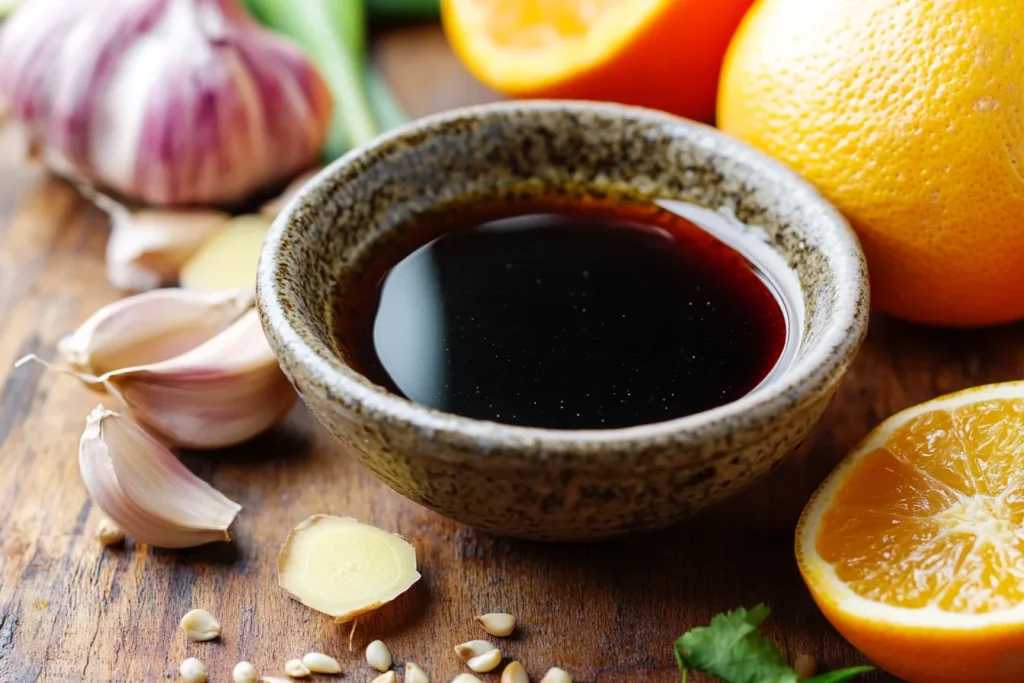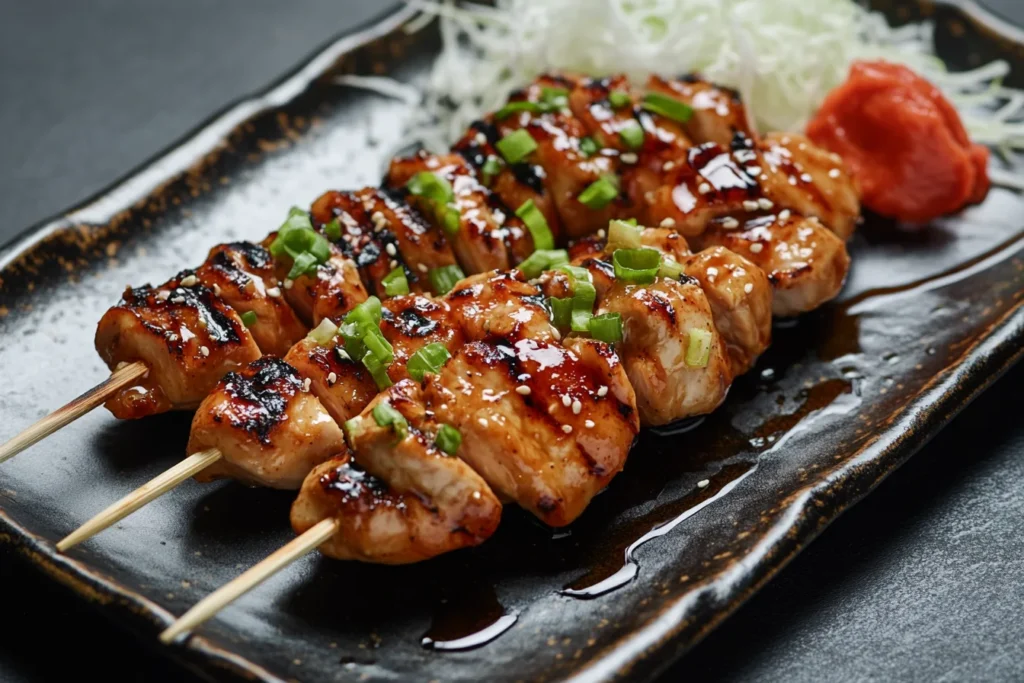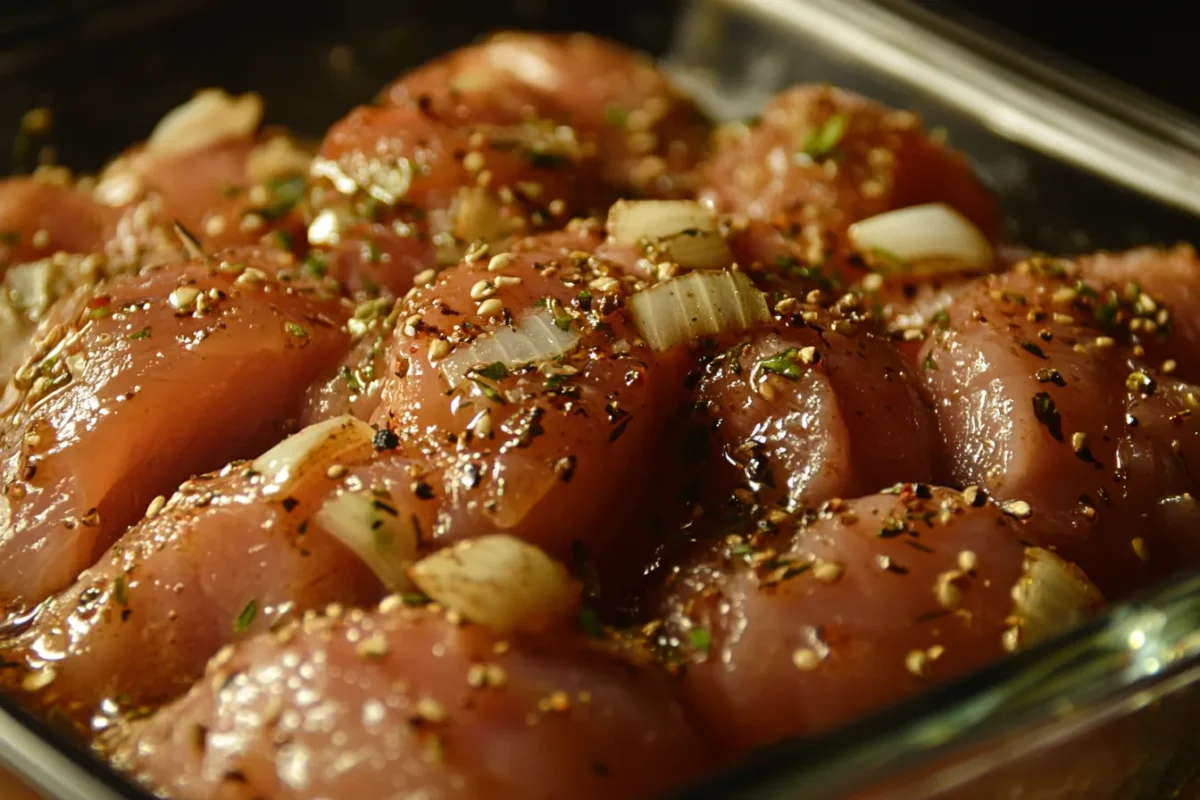Can I Use Soy Sauce as a Marinade?
Soy sauce, with its rich umami profile and versatility, has long been a staple in kitchens around the world. Many home cooks and chefs alike wonder: Can soy sauce truly transform into the perfect marinade? This article dives deep into the science, benefits, and practical tips for using soy sauce as a marinade, providing insights into its effectiveness and flavorful potential.
Understanding the Role of Soy Sauce in Culinary Practices
Historical Evolution of Soy Sauce in Cooking
Soy sauce, a centuries-old condiment, originated in ancient China before spreading across Asia and beyond. Its creation stemmed from the fermentation of soybeans, wheat, and salt—a process that yields its signature salty, savory, and slightly sweet taste. Over time, it became a cornerstone of various cuisines, prized for enhancing dishes with umami richness.
Today, soy sauce is celebrated globally, featuring prominently in both traditional and fusion recipes. Its adaptability makes it not only a condiment but also a foundational ingredient in many culinary techniques, including marination.
How Soy Sauce Became a Kitchen Staple
Soy sauce isn’t just for dipping sushi or adding a splash of flavor to stir-fries. It’s a powerhouse ingredient that can enhance dishes in countless ways:
- As a Flavor Enhancer: Adding depth to soups, stews, and sauces.
- For Glazing and Caramelizing: Creating a rich, glossy finish on meats and vegetables.
- As a Marinade Base: Infusing proteins and vegetables with bold, savory flavors.
These diverse uses are a testament to soy sauce’s unique composition. Its ability to act as a tenderizer, color enhancer, and flavor booster makes it an indispensable tool in any kitchen. As we explore its role as a marinade, we’ll uncover the hidden potential behind this humble ingredient.

Can I Use Soy Sauce as a Marinade?
What Makes Soy Sauce a Powerful Marinade Base?
Soy sauce is much more than a flavorful condiment—it’s a scientifically proven marinade base. When used as a marinade, its complex chemical composition works wonders on proteins. It contains amino acids, salt, and natural sugars, which create a perfect synergy for flavor infusion and tenderization.
- Amino Acids: These compounds deepen the umami flavor and enhance the natural taste of meats and vegetables.
- Salt: Acts as a brine, breaking down muscle proteins to retain moisture while adding that characteristic savory punch.
- Natural Sugars: Contribute to caramelization during cooking, leading to a golden, mouthwatering finish.
This combination makes soy sauce uniquely suited to penetrate proteins and add multidimensional flavors to your dishes.
Chemistry Meets Cuisine: The Role of Soy Sauce in Flavor Infusion
When you delve into soy sauce’s chemistry, you’ll understand why it excels as a marinade:
- Acidity Levels: The slight acidity in soy sauce helps to break down tougher proteins without overwhelming their natural textures.
- Glutamates: These enhance the meaty, savory taste known as umami, making proteins more delectable.
- Fermented Enzymes: These act as natural tenderizers, gently loosening the bonds in meat fibers.
In essence, soy sauce doesn’t just coat food—it transforms it, melding flavors deep into the surface for an unforgettable taste experience.
How Soy Sauce Interacts with Different Proteins
Soy sauce interacts differently with various proteins, making it adaptable to almost any dish:
- Chicken: Absorbs soy sauce readily, becoming tender and juicy. The marinade enhances its natural mild flavor while adding a savory kick.
- Beef: The amino acids in soy sauce pair well with the robust flavor of beef, breaking down tougher cuts for a softer texture.
- Fish: Soy sauce enhances the delicate flavor of seafood without overpowering it, creating a balanced, aromatic result.
- Vegetables: While not a protein, soy sauce beautifully complements the earthy sweetness of grilled or roasted vegetables.
Its versatility is truly unmatched, making it a go-to marinade for a range of dishes.
Benefits of Using Soy Sauce as a Marinade
Bringing Out the Best Flavors in Proteins
One of the standout benefits of using soy sauce as a marinade is its ability to amplify flavors. Its unique balance of salty, sweet, and umami creates a depth of taste that’s hard to achieve with other marinades.
- The salt in soy sauce naturally seasons proteins, eliminating the need for additional salt.
- The fermentation process gives soy sauce its umami-rich profile, which intensifies the natural flavors of meats and vegetables.
- Its liquid form allows it to penetrate deeply into foods, ensuring every bite is packed with bold, savory goodness.
For those seeking to elevate their dishes, soy sauce is the secret weapon for robust, harmonious flavors.
Benefits Beyond Taste: Tenderizing and Appearance
Did you know soy sauce also serves as a tenderizer? Its combination of salt and enzymes works wonders on tough cuts of meat. Here’s how:
- Salt Breakdown: Salt softens muscle fibers, allowing proteins to retain moisture. This results in a juicy, melt-in-your-mouth texture.
- Fermented Enzymes: These help to gently break down proteins, making even lean or tough cuts more palatable.
Whether you’re preparing a hearty steak or a delicate chicken breast, soy sauce can significantly enhance texture.
Color and Appearance Improvement
Soy sauce doesn’t just taste great; it adds visual appeal to your dishes. Its deep, rich color imparts a beautiful golden-brown hue during cooking.
- When proteins marinated in soy sauce hit the heat, natural sugars caramelize, creating an irresistible glaze.
- Vegetables and grains take on a glossy finish, making them visually appetizing as well.
This combination of enhanced flavor, texture, and appearance makes soy sauce a standout choice for marinades. It’s not just about taste—it’s about creating dishes that look as good as they taste.
Practical Applications of Using Soy Sauce as a Marinade

How to Use Soy Sauce as a Marinade
Marinating with soy sauce is simple and effective, making it a versatile option for home cooks and chefs alike. By understanding the process, you can create dishes bursting with flavor while ensuring tender textures.
Essential Ingredients for a Well-Balanced Marinade
Here’s a straightforward soy sauce marinade recipe that pairs beautifully with meats, seafood, and vegetables:
Ingredients:
- ½ cup soy sauce
- 2 tablespoons olive oil
- 2 tablespoons brown sugar (or honey)
- 1 teaspoon garlic, minced
- 1 teaspoon ginger, grated
- 1 tablespoon lemon juice (optional for acidity)
Instructions:
- Combine all ingredients in a mixing bowl. Stir until the sugar dissolves.
- Pour the marinade over your protein or vegetables, ensuring even coverage.
- Let it sit for the recommended time (see below), then cook to your preference.
Step-by-Step Marination Process
- Prepare Your Ingredients: Clean and trim your protein or vegetables before marinating.
- Choose the Right Container: Use a resealable bag or a shallow dish for even marination.
- Add the Marinade: Pour the soy sauce mixture over the ingredients, ensuring full coverage.
- Refrigerate: Always marinate in the refrigerator to prevent bacterial growth.
- Discard Leftover Marinade: If the marinade has been in contact with raw protein, do not reuse it unless boiled thoroughly.
Recommended Marination Times for Various Proteins
- Chicken: 1-4 hours (or up to 8 hours for stronger flavors).
- Beef: 2-6 hours for steaks; overnight for tougher cuts like brisket.
- Fish: 15-30 minutes to avoid overpowering the delicate taste.
- Vegetables: 15-30 minutes is typically sufficient.
Avoid over-marinating, as prolonged exposure to soy sauce can result in overly salty or mushy textures.
Popular Recipes Featuring Soy Sauce Marinades
Soy sauce-based marinades can elevate even the simplest recipes into culinary delights. Here are a few popular dishes that showcase its versatility:
Soy and Garlic Marinated Chicken
This classic recipe combines soy sauce with garlic, creating a bold, savory marinade perfect for grilling or roasting. The soy sauce tenderizes the chicken while the garlic adds a fragrant punch.
Teriyaki Marinade and Sauce
Teriyaki, a favorite in many cuisines, relies heavily on soy sauce. This marinade mixes soy sauce with brown sugar, ginger, and mirin, delivering a sweet-savory glaze that’s ideal for stir-fry or grilling.
Soy-Marinated Flank Steaks
Soy sauce pairs exceptionally well with beef, and flank steak is no exception. A soy-based marinade tenderizes the meat while enhancing its robust flavor.
By experimenting with these recipes, you’ll unlock soy sauce’s full potential as a marinade.
Alternatives and Enhancements to Soy Sauce Marinades

Soy Sauce Pairings for Maximum Impact
Soy sauce, though exceptional on its own, truly shines when combined with complementary ingredients. By pairing it with other flavors, you can create complex marinades tailored to your taste preferences.
- Garlic and Ginger: These staples add warmth and a zesty kick, enhancing soy sauce’s umami notes.
- Citrus Juices: Lemon, lime, or orange juice introduces a tangy brightness that balances soy sauce’s saltiness.
- Honey or Brown Sugar: A touch of sweetness counteracts the sodium and helps caramelize during cooking.
- Herbs and Spices: Rosemary, thyme, or chili flakes can elevate your marinade with earthy or spicy undertones.
Experimenting with these combinations lets you craft custom marinades for any dish, ensuring a flavor-packed meal every time.
Exploring Soy Sauce Alternatives for Diverse Palettes
While soy sauce is unparalleled in its versatility, there are times when you may need an alternative. Here are some substitutes that work well in marinades:
- Tamari: A gluten-free soy sauce alternative with a similar flavor profile, perfect for those with dietary restrictions.
- Coconut Aminos: A slightly sweeter, less salty option derived from coconut sap, ideal for low-sodium diets.
- Liquid Aminos: Another soy-free option that mimics the umami taste of soy sauce, often used in vegan recipes.
- Worcestershire Sauce: Though tangier and less salty, this can be a suitable swap when soy sauce isn’t available.
Each substitute brings its own unique twist to marinades while maintaining the savory essence of soy sauce.
By incorporating enhancements or exploring alternatives, you can expand your marination repertoire without sacrificing flavor.
Frequently Asked Questions About Using Soy Sauce as a Marinade
Can soy sauce be used alone as a marinade?
Yes, soy sauce can be used as a standalone marinade, but its impact is often enhanced when paired with additional ingredients. On its own, soy sauce adds a rich, savory flavor and tenderizes proteins, making it a simple and effective marinade. However, for more complex flavors, combining it with garlic, ginger, or citrus juices is highly recommended.
How long should I marinate meat in soy sauce?
The marination time depends on the type of protein:
- Chicken: 1-4 hours for optimal flavor without becoming overly salty.
- Beef: 2-6 hours, or overnight for tougher cuts like brisket.
- Fish: A short marination of 15-30 minutes prevents the fish from being overwhelmed by the soy sauce.
- Vegetables: 15-30 minutes is usually sufficient to infuse flavor.
Avoid excessive marination, as it can lead to an overly salty or mushy texture.
Does soy sauce tenderize meat?
Yes, soy sauce is an excellent natural tenderizer. The salt and fermented enzymes in soy sauce help break down proteins in meat, making it more tender. It’s particularly effective for lean cuts that might otherwise become dry or tough during cooking.
Is it safe to reuse soy sauce marinade?
Soy sauce marinade that has been in contact with raw meat should not be reused without being boiled thoroughly. Boiling kills bacteria, making it safe to use as a sauce or glaze. However, it’s best practice to reserve a portion of the marinade separately if you plan to use it later in the cooking process.
Can I use soy sauce marinade for grilling?
Absolutely! Soy sauce marinades are fantastic for grilling. They not only infuse meats and vegetables with bold flavor but also contribute to caramelization, creating a beautiful charred crust. Just be mindful of grilling times to prevent the sugars in the marinade from burning.
What are the best proteins to marinate with soy sauce?
Soy sauce works well with a variety of proteins, including:
- Chicken: Absorbs the marinade beautifully, resulting in juicy, flavorful meat.
- Beef: Pairs exceptionally with soy sauce for tender, savory cuts.
- Pork: Soy sauce complements its sweetness, creating a balanced flavor profile.
- Fish and Seafood: Adds a subtle depth without overpowering delicate flavors.
Soy sauce’s versatility makes it an excellent choice for nearly any protein.
Final Thoughts on Using Soy Sauce as a Marinade
Soy sauce is undeniably one of the most versatile and effective ingredients for marinating. Its unique combination of savory, sweet, and umami flavors elevates a wide range of proteins and vegetables, making it a go-to option for home cooks and professional chefs alike.
The benefits of using soy sauce as a marinade extend beyond flavor. It tenderizes meat, enhances texture, and adds a beautiful golden-brown finish during cooking. Its adaptability allows it to stand alone or pair seamlessly with other ingredients like garlic, citrus, and herbs for more complex marinades.
However, like all culinary tools, soy sauce should be used thoughtfully. Proper marination times, awareness of sodium content, and careful preparation can help you maximize its potential while avoiding common pitfalls such as over-marinating or overly salty results.
Whether you’re grilling, roasting, or pan-frying, soy sauce transforms simple dishes into culinary delights. By experimenting with different combinations and techniques, you’ll unlock endless possibilities for creating meals that are not only delicious but also visually stunning.
So, the next time you’re preparing a marinade, don’t hesitate to reach for soy sauce. Its rich flavor, natural tenderizing properties, and visual appeal are sure to elevate your cooking to new heights.

